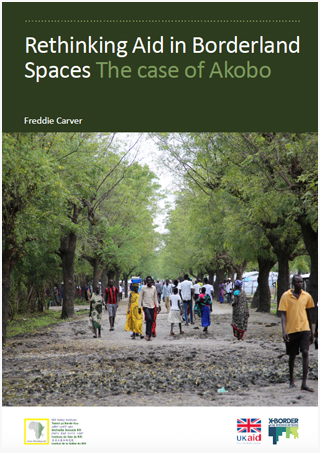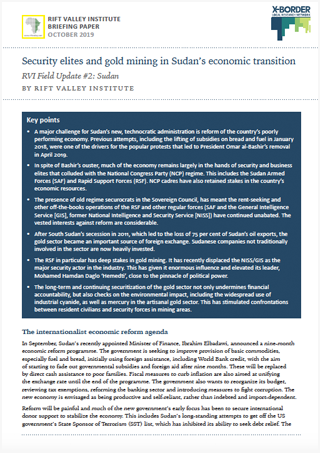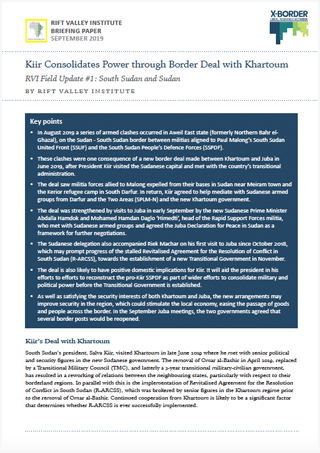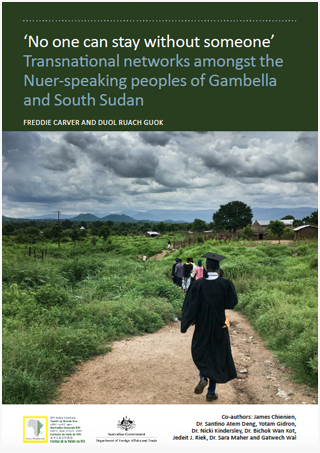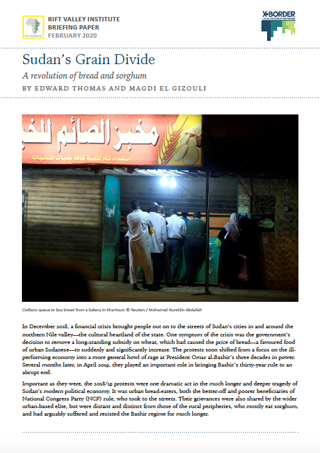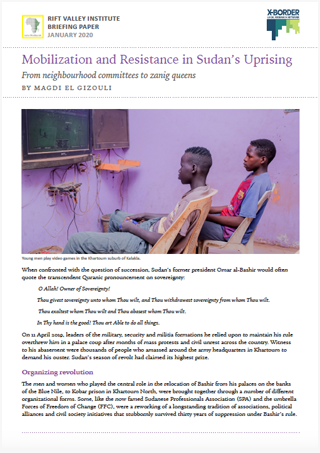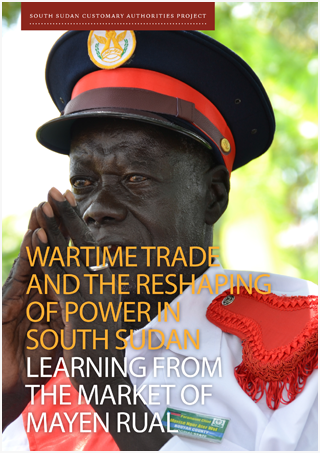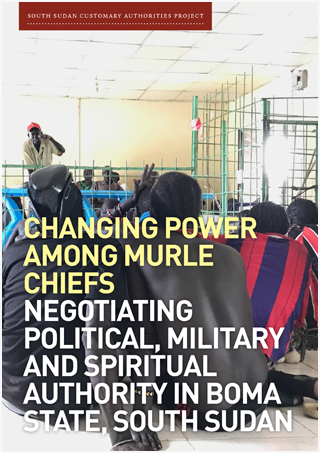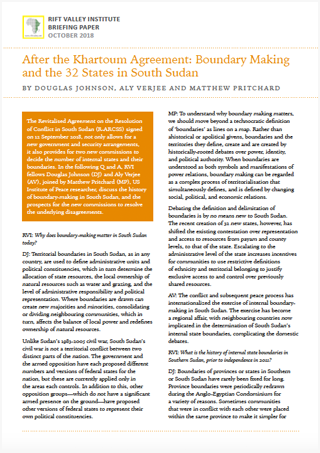Taking the Ethiopia-South Sudan borderlands as a case study, Rethinking Aid in Borderland Spaces: The case of Akobo argues that the traditional modalities of the aid industry are not fit for purpose in a world where transnationalism is a daily…
RVI publishes books, research reports, research papers, briefings and meeting reports in a range of formats. Publications cover policy, research, arts, culture and local knowledge in the countries of eastern and central Africa. Research publications—books, reports and papers—are peer-reviewed. Some RVI publications are also available in French and/or Arabic.
The RVI is a signatory of the Budapest Open Access Initiative (2001); all publications are free for download in PDF format under Creative Commons licences. The views expressed in books and reports published by the RVI are those of the authors, not the Institute.
SEARCH
PUBLICATION TYPE
LANGUAGE
REGION
COUNTRY
Key Points A major challenge for Sudan’s new, technocratic administration is reform of the country’s poorly performing economy. Previous attempts, including the lifting of subsidies on bread and fuel in January 2018, were one of the drivers for the…
Key Points In August 2019 a series of armed clashes occurred in Aweil East state (formerly Northern Bahr el- Ghazal), on the Sudan – South Sudan border between militias aligned to Paul Malong’s South Sudan United Front (SSUF) and…
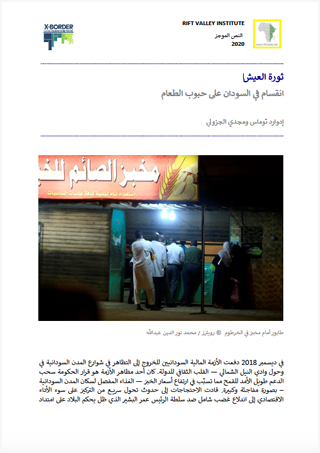
Over the last 50 years, the various conflicts afflicting South Sudan have caused massive displacements of people. Latest estimates suggest there are more than 1.5 million internally displaced people (IDPs) within the country’s borders, with another 2.2 million refugees…
This briefing unpacks the connected political and economic crisis that reached a climax in early 2019 through the contrasting but connected worlds of Sudan’s bread and sorghum eaters. Its conclusion presents the limited options available to the as…
RVI Fellow Magdi el-Gizouli’s briefing examines the forms of popular resistance and organization that emerged within Sudan’s uprising in 2018-19. He considers whether the new transitional government, which must balance the interests of Sudan’s different social groups, will…
During war, geographies of economic and political power are often recast by shifting patterns of trade and population movements. This can present an opportunity for local leaders to reshape legal and moral logics to attract trade and people to…
International, national and local political discourses often portray the Murle community as principal aggressors and the source of much of the instability affecting former Jonglei State in South Sudan. Although such negative stereotypes are partially driven by actual events,…
The Revitalised Agreement on the Resolution of Conflict in South Sudan (R-ARCSS) signed on 12 September 2018, not only allows for a new government and security arrangements, it also provides for two new commissions to decide the number of…
Recent Publications

2025 Year in Review
February 16, 2026
The 2025 Year in Review provides an overview of the Rift Valley Institute’s work over the past year across eastern and central Africa. The report highlights RVI’s research and publication outputs, education and training activities, and public forums and convenings,

Rethinking Aid in Sudan and South Sudan
January 28, 2026
The brief draws on a joint convening held in Kampala, Uganda, in November 2025, which brought together more than 45 Sudanese and South Sudanese participants representing more than 30 grassroots organizations and international NGOs. Its primary objective is to amplify

EWNET Writes: Writing Workshop Session I
December 18, 2025
The Ethiopian Women Researchers Network (EWNET) inaugural writing workshop series aims to not only provide women researchers with uninterrupted time for their scholarly projects, but also build a supportive academic community. The first session, entitled ‘EWNET Writes: Writing Workshop Session

